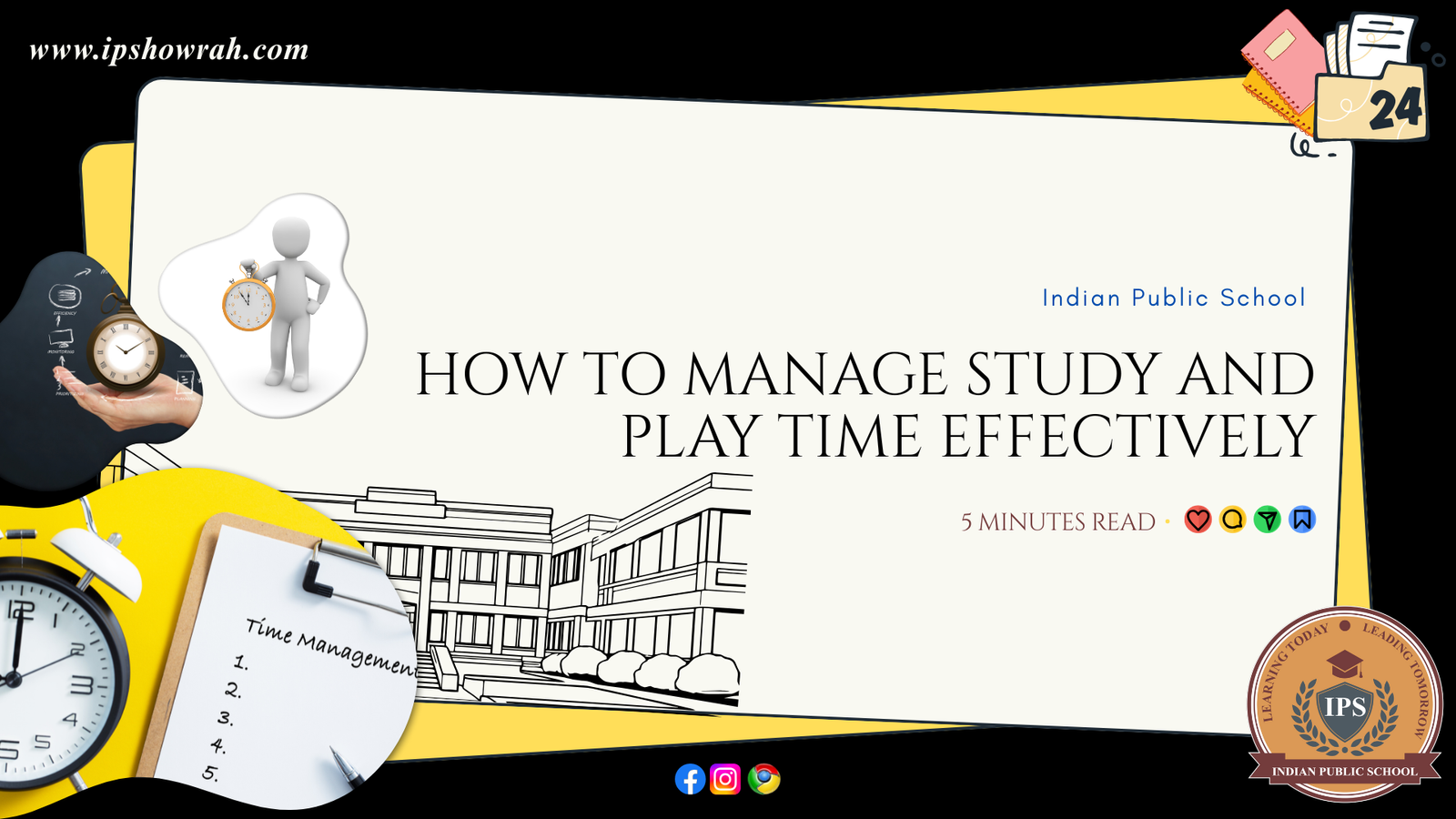How to Manage Study and Play Time Effectively

Striking the right balance between study and play can feel like a tough challenge for students. Homework, exams, and projects take time, but so do sports, hobbies, and hanging out with friends. The good news?
– You don’t have to give up fun to do well in school. With smart time management for students, you can enjoy both your studies and free time – without feeling stressed or guilty. This article shares simple, practical tips to help you find that healthy mix every day.
Why Balance Matters for Students
Studying is important for learning new things and getting good grades. But playtime is just as vital – it lets you relax, exercise, be creative, and make friends. Students who only focus on books can feel tired and lose interest in learning.
On the other hand, those who only play and ignore homework often struggle in class. The best approach is to build a routine that gives you time for both. Learning to balance study and play helps you stay happy, healthy, and motivated.
Five Simple Steps to Better Time Management
Make a Daily Schedule
Plan your day so you know exactly when to study and when to play. Use a notebook, calendar, or phone app to write down your classes, homework time, and free time. Try to stick to your schedule as much as possible. For example, study from 4:00 to 5:30, then play outside until dinner. This way, you won’t forget your homework and you’ll always have time to relax.
If you finish your work early, reward yourself with extra playtime. But if you fall behind, focus on catching up before going out to play.
Prioritize Your Tasks
Not all homework is the same. Some assignments are more important or take longer than others. Start with the hardest or most urgent tasks. Break big projects into smaller steps. For example, if you have a science project due next week, work on a little bit each day. This helps you stay organized and stops you from feeling overwhelmed.
Take Regular Breaks
Studying for hours without a break is bad for your brain and body. Try the Pomodoro Technique: study for 25 minutes, then take a 5-minute break. During breaks, stretch, jump, or play a quick game. These short pauses help you focus when you return to your books.
Find a Quiet, Comfortable Spot to Study
When it’s time to study, choose a place with no TV, loud music, or noisy siblings. Keep your phone on silent and avoid social media. A quiet spot helps you concentrate, so you finish faster and have more time to play.
Mix Play with Learning
Who says studying has to be boring? Try educational games, quiz apps, or puzzles that make learning fun. If you love sports, practice math by keeping score. If you enjoy drawing, sketch science diagrams. Mixing study and play keeps your mind fresh and makes schoolwork less dull.
Easy Tips to Balance Hobbies and Homework
– Set clear goals: Each morning, write what you need to do. Finish homework? Play cricket? Both? Checking off tasks feels great and keeps you on track.
– Avoid multitasking: Focus on one thing at a time. Don’t try to text friends, watch videos, and do math homework all at once. You’ll do better if you give each task your full attention.
– Be flexible: Sometimes plans change – maybe a friend invites you to play when you plan to study. It’s okay to switch things around, but always finish your must-do tasks.
– Listen to your body: If you’re too tired to focus, take a nap or go for a walk. Rest helps your brain work better when you return to your books.
– Get enough sleep: Staying up late to study or play games hurts your concentration the next day. Try to sleep 8 – 9 hours every night.
How Play and Hobbies Help You Study Better
Playing sports, music, or games isn’t just fun – it actually helps you learn. Here’s how:
– Exercise boosts your brain: Regular play keeps your body fit and your mind sharp. Active kids often do better in class and on tests.
– Hobbies reduce stress: Painting, dancing, or playing an instrument can help you relax after a long day of school.
– Teamwork and creativity: Group games and creative hobbies teach you to solve problems, work with others, and think outside the box. These skills help in school and life.
Common Problems – and Easy Solutions
Problem: I always have too much homework.
Solution: Break homework into small parts. Do a little every day instead of waiting until the last minute. If you’re stuck, ask your teacher or parents for help – don’t waste time worrying alone.
Problem: My friends want to play when I need to study.
Solution: Plan your study and play times in advance. Tell your friends when you’ll be free. Stick to your schedule so you don’t fall behind.
Problem: I get distracted by my phone or TV.
Solution: Put your phone away and turn off the TV during study time. Ask your family to help you stay focused. Reward yourself with screen time after your work is done.
Problem: I feel tired and can’t concentrate.
Solution: Take short breaks every 30 – 45 minutes. Drink water, have a healthy snack, or do some jumping jacks. A fresh mind works better than a tired one.
Frequently Asked Questions
How much time should I spend studying each day?
It depends on your age and schoolwork, but most students need 1 – 2 hours for homework and study each day, plus time in class. Use your free time wisely for play, rest, and hobbies.
Can I play video games or watch TV every day?
Some screen time is fine, but too much can make it hard to focus on school. Try to balance games and shows with outdoor play, reading, and other activities.
What if I don’t finish my homework on time?
Talk to your teacher or parents. They can help you figure out why you’re falling behind and how to catch up. Don’t panic – everyone needs help sometimes.
Is it okay to study with friends?
Studying with friends can be fun and helpful, as long as you stay focused. Set clear goals for your study group and take turns quizzing each other.
How can I remember to follow my schedule?
Put your schedule where you can see it every day – on your desk, fridge, or phone. Set alarms or reminders if you need them. Soon, your routine will feel natural.
Conclusion
Finding the right balance between study and play is all about planning, setting priorities, and listening to your needs. With good time management for students, you can enjoy your hobbies, do well in school, and stay stress-free. Remember, it’s okay to take breaks, ask for help, and adjust your routine as you learn what works best for you.
Start today by making a simple schedule and sticking to it. With a little practice, you’ll have plenty of time for homework, games, friends, and fun – every single day.
For more helpful tips and student resources, visit our blog or follow us on Instagram and Facebook.



